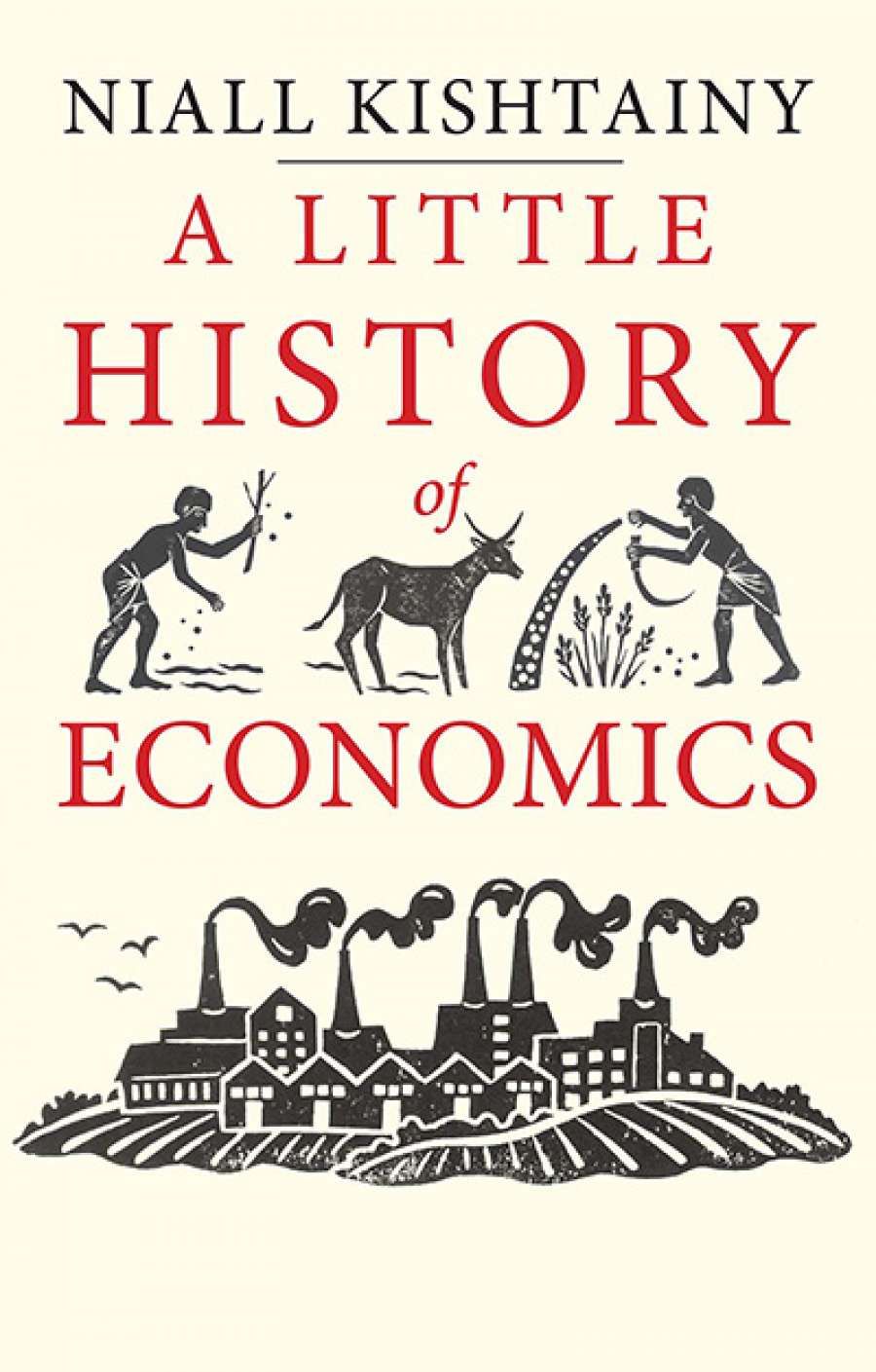
- Free Article: No
- Contents Category: Economics
- Custom Article Title: Geoffrey Blainey reviews 'A Little History of Economics' by Niall Kishtainy
- Book 1 Title: A Little History of Economics
- Book 1 Biblio: Yale University Press (Footprint), $37.99 hb, 256 pp, 9780300206364
The book consists of forty short essays, most of which pivot on one idea or individual. Adam Smith is followed by a procession of famous or once-famous names, including David Ricardo, a British sharebroker whose technique of ‘building up a long chain of cause and effect became that of economics’. He was said to bring ‘a new standard of reasoning into economics’, but he did not persuade Charles Fourier, a Frenchman, or Robert Owen, a Welshman. Radicals in their day, they in turn did not convince Karl Marx, who appears in chapter ten. Marx and John Maynard Keynes, who appears in chapter eighteen, are the two main power points in the book.
Karl Marx denounced nearly all his predecessors. He saw little hope until private property was eliminated. Perhaps Marx would have changed his mind if today he could see millions of ordinary Russians, under capitalism, enjoying their privately owned cars and holiday houses? Kishtainy says ‘no’. Marx would have still viewed them as ‘cogs in a giant machine’ and, by the nature of their work, ‘disconnected from their humanity’.
The global Depression of the 1930s and the Cold War that mesmerised the world from 1945 to 1990, provided a boxing stadium for economists. In the capitalist West, Keynes became, step by step, the hero, even in the United States. His theory in its heyday came to rely also on the work of Bill Phillips, a New Zealander who also spent two short periods of his life in Australia.
While the book offers short personal sketches of most of the leading economists, it neglects Phillips’s unusual life. A prisoner of war in Japanese camps in Java, Phillips was a postwar student in London, where at first nobody thought that this restless chain-smoker would ever be a star thinker. His exam results were lowly. It turned out that he performed poorly in written exams partly because he was not allowed to take cigarettes into the exam room. Author of the Phillips Curve, he preached that when unemployment was low the rate of inflation tended to be high: the opposite also was true. It was the world’s stagflation of the 1970s that did much to dethrone Keynes and Phillips.
Milton Friedman arrives in chapter twenty-nine, a determined American, the son of poor Jewish migrants from Hungary, and the champion of ‘the Chicago school of economics’. In the new boxing ring, Friedman chastised the long-dead Keynes. He insisted that the acute economic problems of the 1970s were ‘the result of too much government, not too little’. And then the financial crisis hit the world in 2008: ‘The crisis was a complete shock, even to economists.’ So Queen Elizabeth chided her hosts when she visited the London School of Economics. It is fair to say that economic life in modern times is like a fast-changing surf, in which nearly every champion board rider is ultimately dumped or drowned. One economist who could have held his head high (he died in 1996) was Hyman Minsky, an American of Russian Jewish ancestry. He had often warned that even a successful economy is not safe from disaster.
 Niall KishtainyIf you hunt elsewhere for the detailed background of the London author of this engaging, smallish book – bare of footnotes and bibliography – you find this matter of fact note: ‘I’m a writer, economist and historian.’ A photograph, not in the book, shows a neat dark beard and inquisitive face. His prose is clear and everyday: young people repelled by the jargon of mainstream economics are amongst his chosen audience. He tries to make important economic distinctions in simple language. Fiscal, an adjective much used by economists and treasurers but rarely by the public, is explained thus: ‘In ancient Rome, the fiscus was the treasure chest of the emperor, so fiscal policy is about the state filling up its coffers with taxes and emptying them by spending.’ Keynesian economists preferred fiscal policy to monetary.
Niall KishtainyIf you hunt elsewhere for the detailed background of the London author of this engaging, smallish book – bare of footnotes and bibliography – you find this matter of fact note: ‘I’m a writer, economist and historian.’ A photograph, not in the book, shows a neat dark beard and inquisitive face. His prose is clear and everyday: young people repelled by the jargon of mainstream economics are amongst his chosen audience. He tries to make important economic distinctions in simple language. Fiscal, an adjective much used by economists and treasurers but rarely by the public, is explained thus: ‘In ancient Rome, the fiscus was the treasure chest of the emperor, so fiscal policy is about the state filling up its coffers with taxes and emptying them by spending.’ Keynesian economists preferred fiscal policy to monetary.
Academic economists might complain that Niall Kishtainy simplifies too much. I doubt whether that is a fair criticism. He insists that even the smartest economist tackling the most daunting problem has to simplify his theories: ‘To explain anything, you have to leave out what’s least important to reveal what’s most important.’


Comments powered by CComment